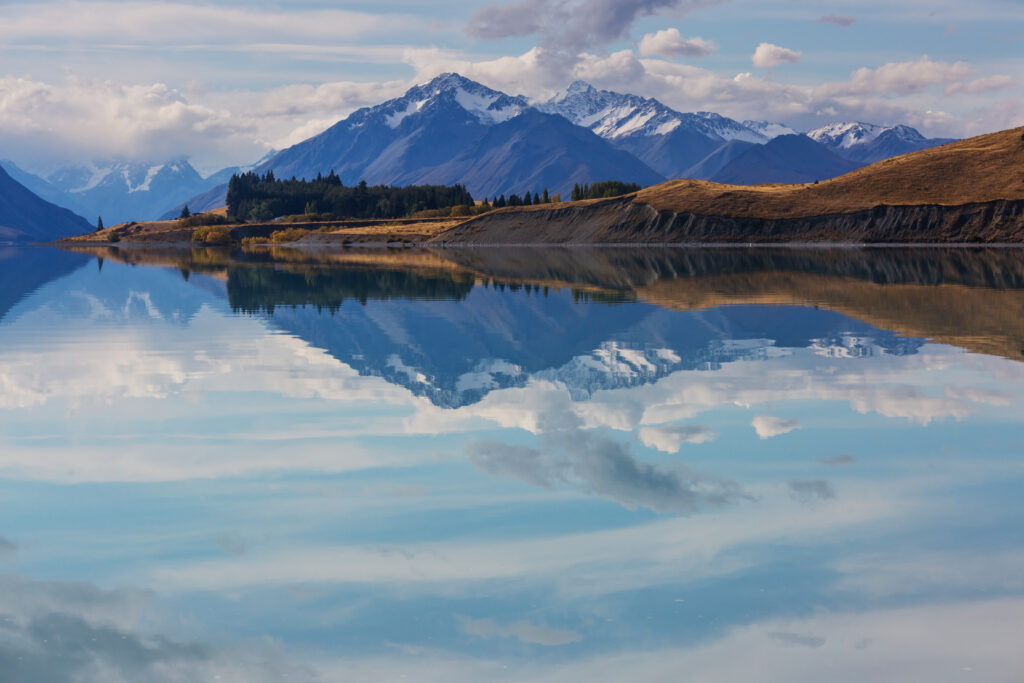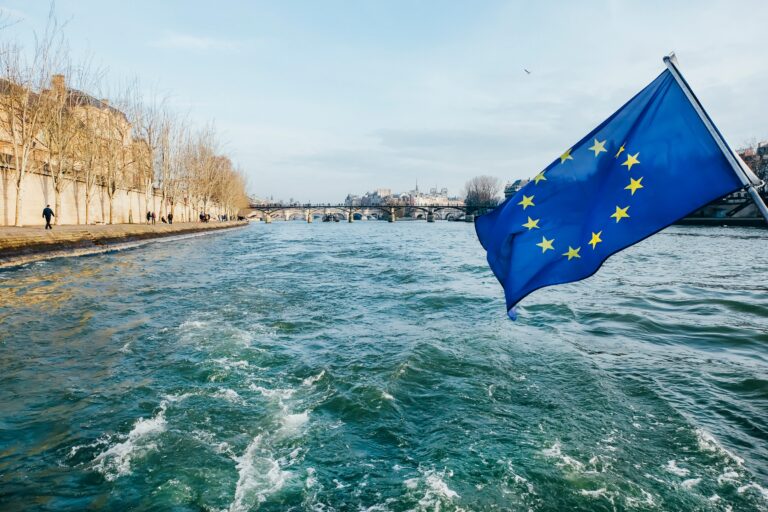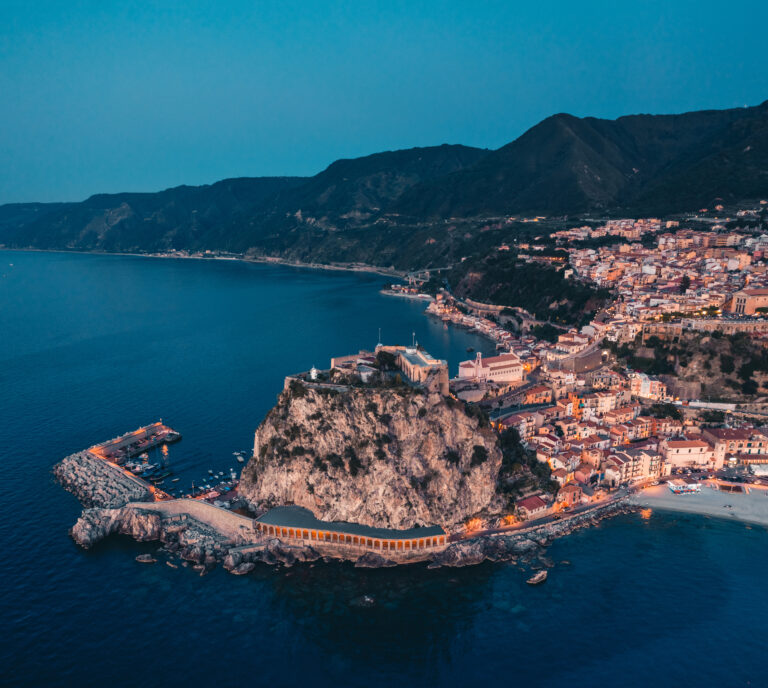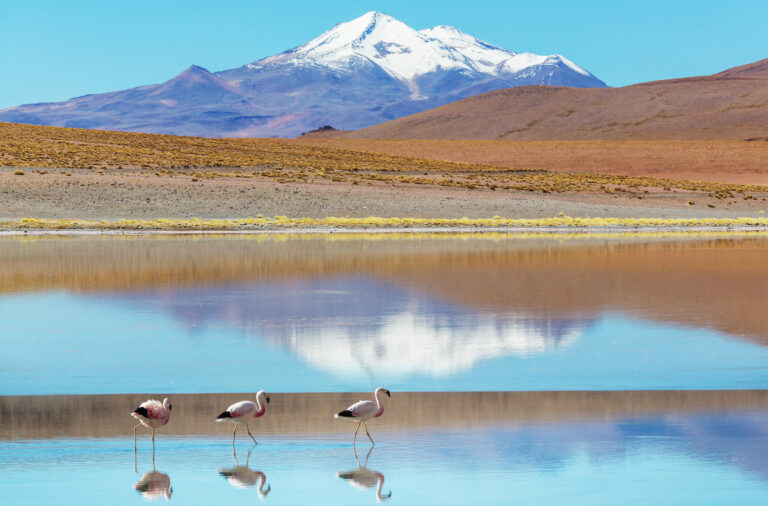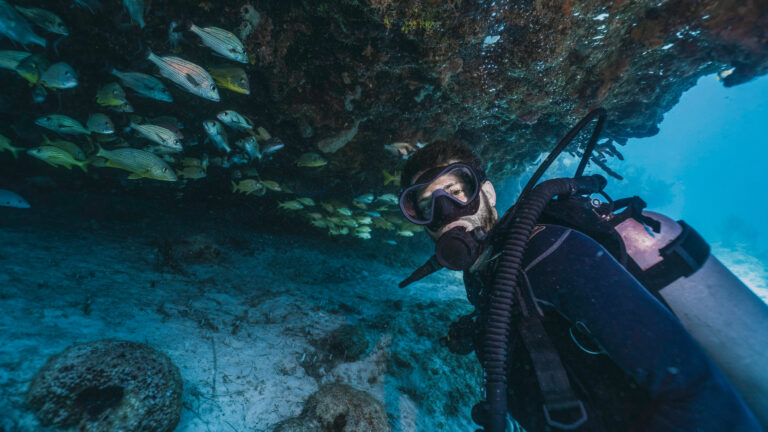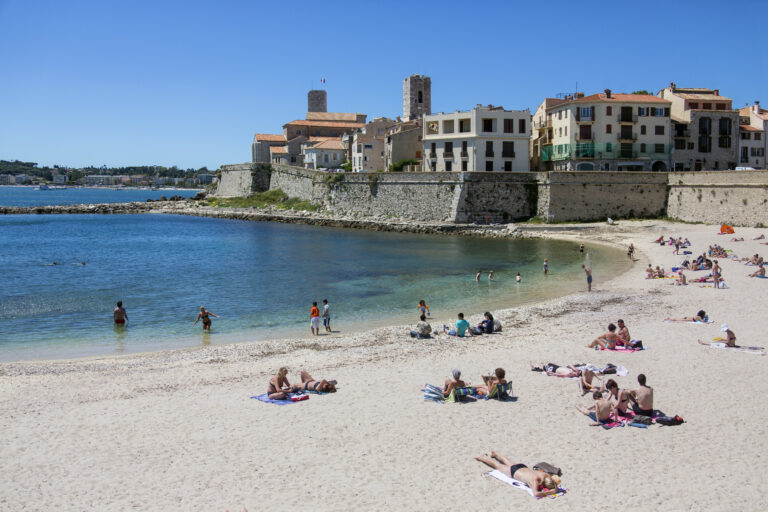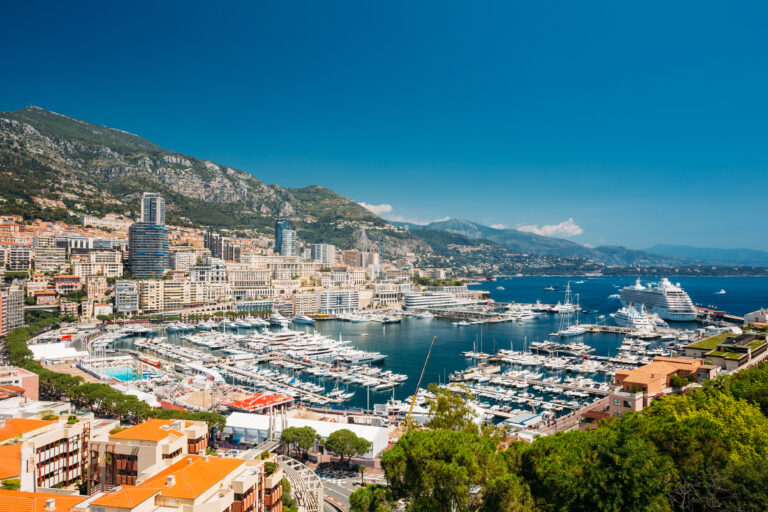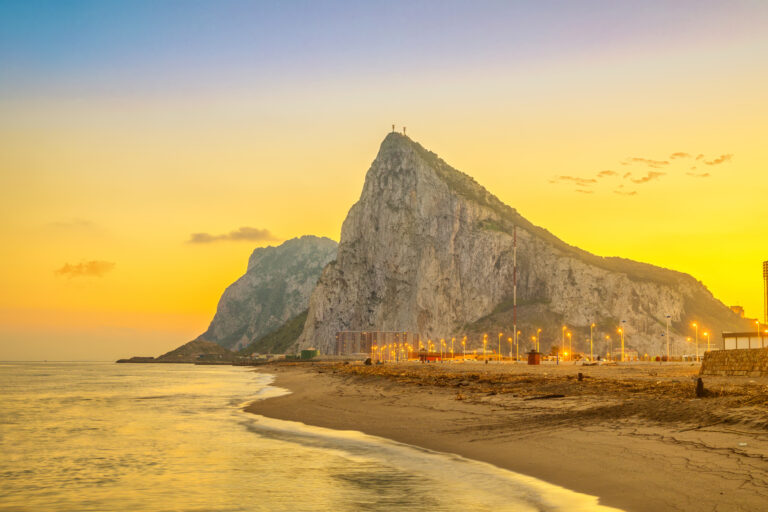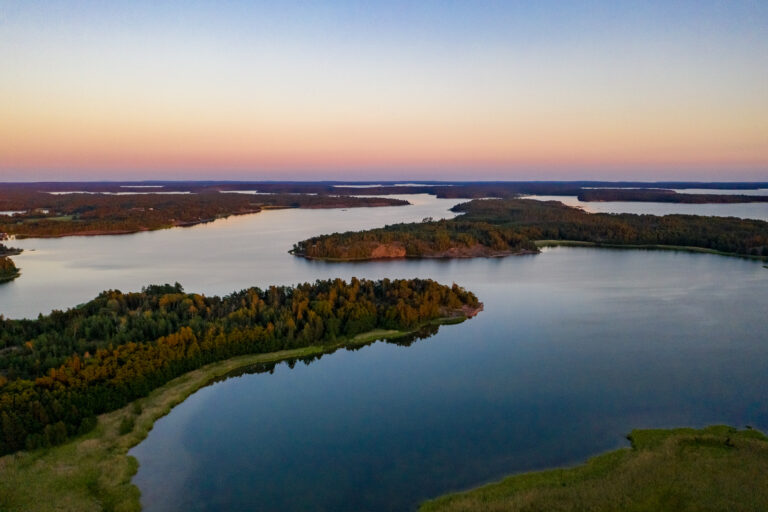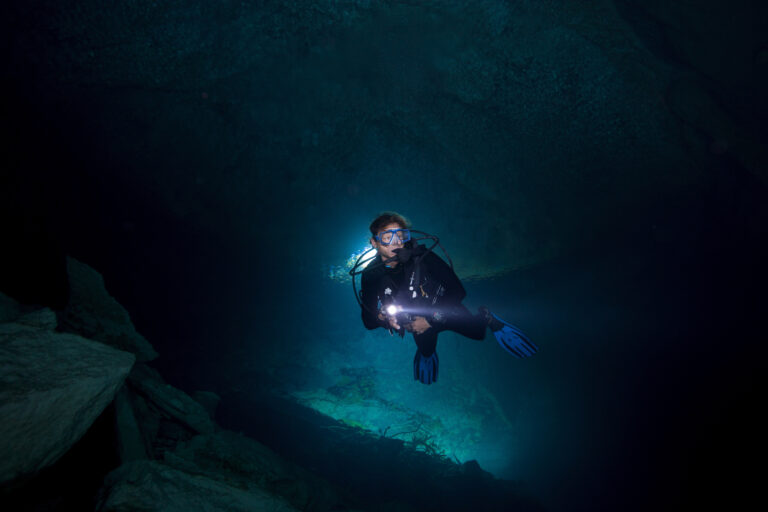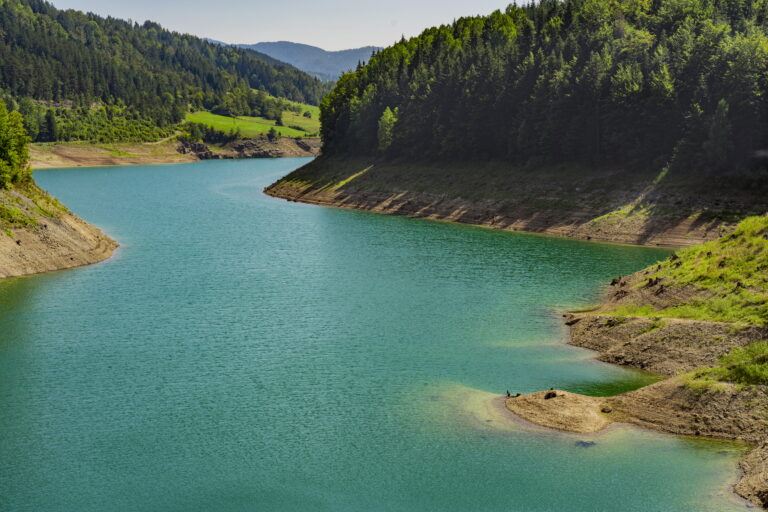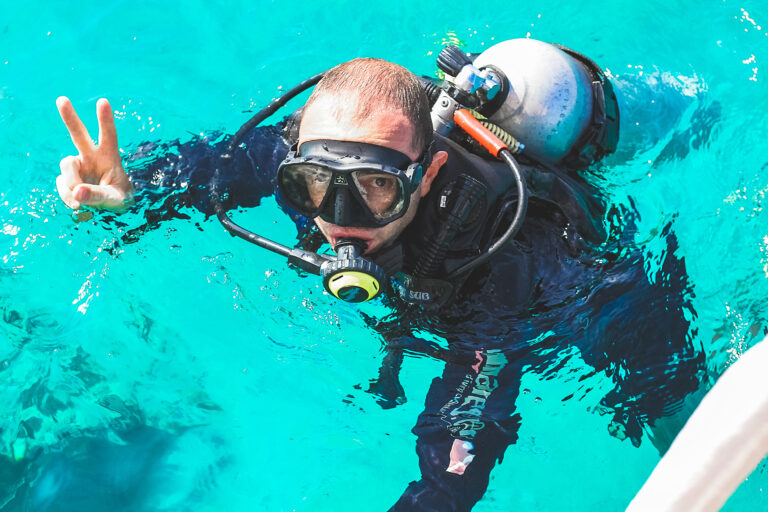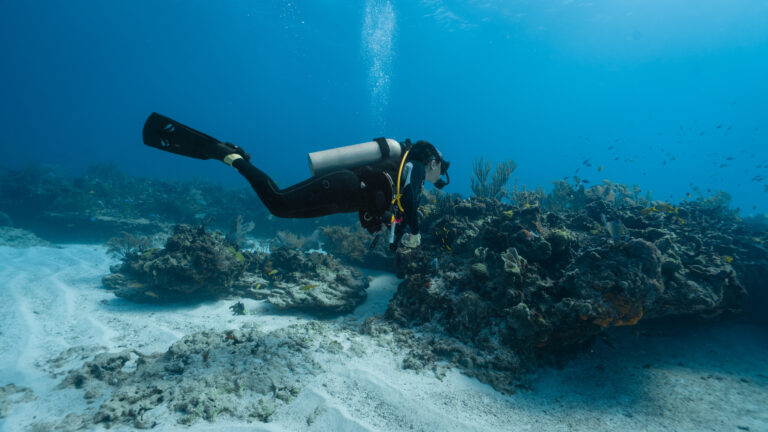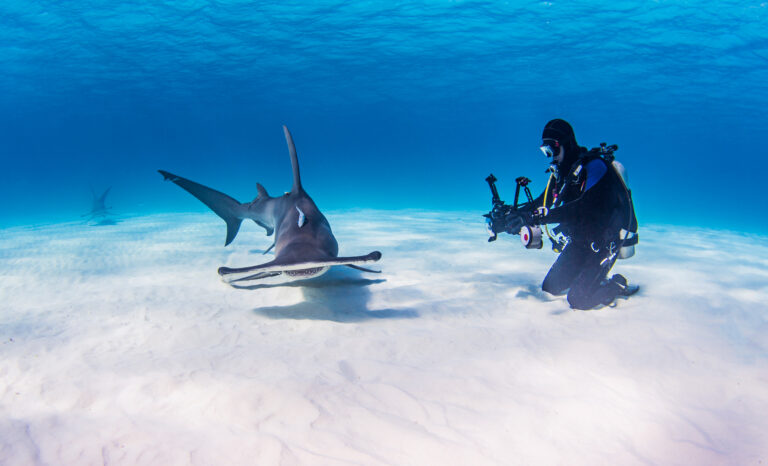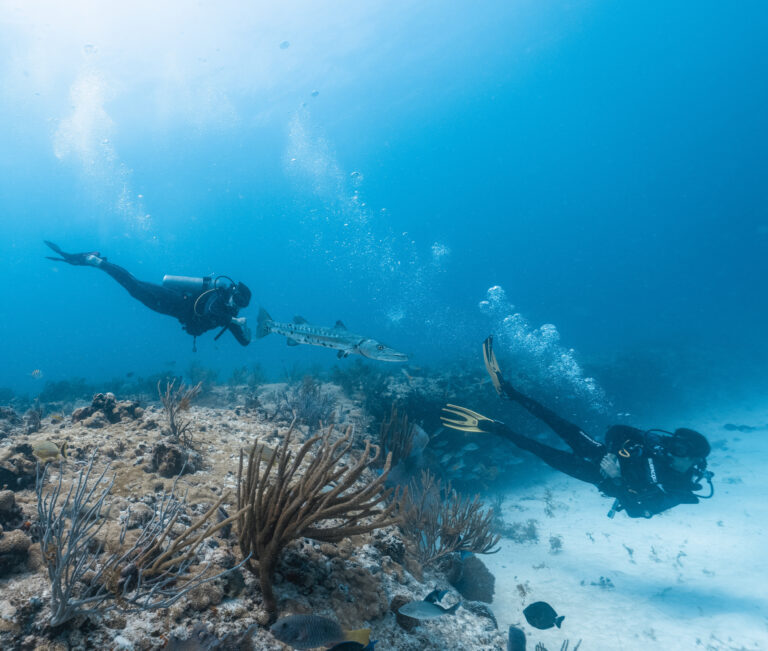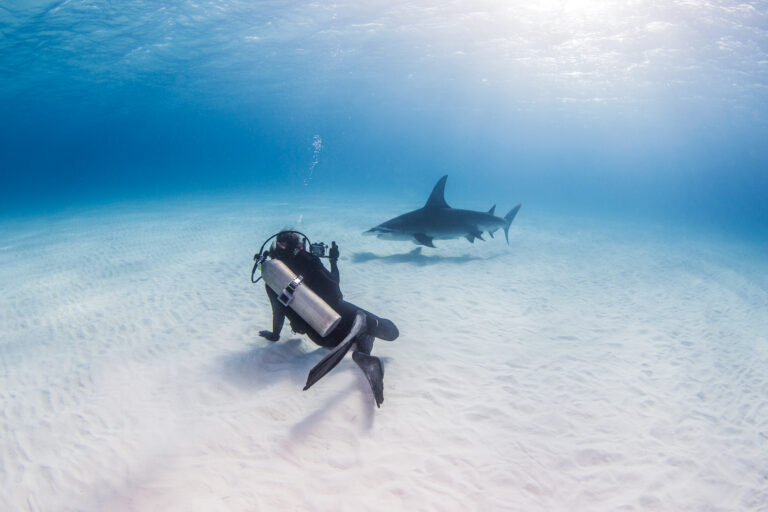SCUBA DIVERS’ TRAVEL GUIDE TO New Zealand
New Zealand is a dream destination for scuba divers who want to explore the diverse and stunning underwater landscapes of this island nation. Whether you are looking for tropical reefs, volcanic vents, shipwrecks, or fiords, New Zealand has it all. You can dive with colorful fish, playful seals, majestic whales, and even dolphins in some of the best dive sites in the world. New Zealand offers diving opportunities for all levels of experience, from beginner to advanced. You can dive year-round in New Zealand, but be prepared for cooler water temperatures in the south and warmer ones in the north. No matter where you go, you will be amazed by the beauty and variety of New Zealand’s marine life and scenery. New Zealand is a scuba diver’s paradise that you don’t want to miss!
LOCATION AND GEOGRAPHY
New Zealand, a breathtaking island nation in the southwestern Pacific Ocean, is a scuba diver’s paradise, offering a diverse range of underwater experiences across its two main landmasses, the North and South Islands, as well as numerous smaller islands. The North Island is renowned for its subtropical diving at the Poor Knights Islands, where volcanic topography beneath the waves creates a labyrinth of caves, arches, and tunnels teeming with marine life. In contrast, the South Island boasts the cooler waters of the Fiordland National Park, where divers can explore the unique environment of the Milford and Doubtful Sounds, characterized by deep underwater fjords and a layer of fresh water on the surface that creates a dark, mirror-like effect, enhancing the visibility of the vibrant marine ecosystem below. The remote subantarctic islands further south offer a chance to encounter rare species in pristine conditions. New Zealand’s varied geography, with its tectonic origins, provides a dramatic underwater terrain that includes sunken wrecks, kelp forests, and coral reefs, making it an exceptional destination for divers of all levels seeking both adventure and the tranquility of the ocean’s depths.
VISA AND ENTRY REQUIREMENTS
Before embarking on your underwater adventure to New Zealand’s breathtaking dive sites, it’s essential to ensure you have the correct visa and understand the entry requirements. Most travelers will need a visa or an NZeTA (New Zealand Electronic Travel Authority) to enter the country. Visitors from visa waiver countries can apply for an NZeTA online before departure, which is valid for multiple visits and up to two years. If you’re not from a visa waiver country, you’ll need to apply for a visitor visa. Upon arrival, you must also present a return ticket or evidence of onward travel, as well as proof of sufficient funds for the duration of your stay. It’s important to check the latest immigration regulations well in advance, as New Zealand’s policies can change and may have been updated since the publication of this guide. Always consult the official New Zealand Immigration website or your local New Zealand embassy for the most current information.
GETTING TO New Zealand
Getting to New Zealand for an unforgettable scuba diving adventure is a journey that will take you to the other side of the world, where the Southern Hemisphere offers a unique underwater experience. Most international travelers will arrive by air, landing at Auckland International Airport, the country’s largest and busiest gateway, or at other international airports such as Wellington, Christchurch, or Queenstown. From North America, direct flights are available from cities like Los Angeles, San Francisco, and Vancouver, while from Europe, travelers can expect at least one stopover, commonly in Asia or the Middle East. Australians have the luxury of a short hop across the Tasman Sea. Upon arrival, domestic flights, car rentals, and even the iconic Kiwi Experience buses provide convenient options to reach the coastal regions where scuba diving spots abound. Whether you’re planning to explore the sub-tropical waters of the North Island or the cooler, nutrient-rich environments of the South Island, New Zealand’s well-connected transportation network makes it easy to embark on your underwater journey.
BEST TIME TO DIVE
The best time to scuba dive in New Zealand is during the Southern Hemisphere’s summer and autumn months, from December through May, when the water temperatures are warmer and the visibility is often at its peak. During this period, the North Island offers subtropical diving conditions with water temperatures ranging from 18°C to 24°C (64°F to 75°F), ideal for exploring the Poor Knights Islands and the Bay of Islands, renowned for their rich marine biodiversity. Meanwhile, the South Island’s cooler waters, particularly in the Marlborough Sounds and Fiordland, provide unique opportunities to encounter deep-water species and lush kelp forests, with temperatures hovering between 14°C to 19°C (57°F to 66°F). Although diving is possible year-round, the winter months can bring colder water and reduced visibility, but also fewer tourists, making it a good time for those who prefer a more solitary diving experience. Always consider local weather patterns and consult with dive operators for the most current conditions, as New Zealand’s weather can be highly variable.
ACCOMMODATION OPTIONS
New Zealand offers a diverse range of accommodation options to suit the needs of scuba divers exploring its rich underwater landscapes. From the subtropical North Island with its Poor Knights Islands Marine Reserve to the fiords of the South Island, divers can find comfort in a variety of lodgings. In the Bay of Islands and around the Coromandel Peninsula, beachfront resorts and holiday parks cater to those seeking immediate access to dive sites, while boutique lodges and eco-retreats provide serene environments to relax in after a day beneath the waves. In more remote areas, such as Fiordland, divers can opt for liveaboard boats that double as accommodation, allowing them to wake up right at the dive spot. For those on a budget, hostels and backpackers are plentiful, often with gear washing and storage facilities, and for a truly Kiwi experience, renting a campervan offers the freedom to follow the best diving conditions around the country while having all the essentials at hand. Whether you’re looking for luxury or simplicity, New Zealand’s accommodation options are as varied and exciting as its underwater treasures.
DIVE OPERATORS AND DIVE SHOPS
New Zealand’s diverse underwater landscapes make it a premier destination for scuba enthusiasts, and the country’s dive operators and shops are well-equipped to cater to divers of all levels. From the sub-tropical reefs in the Bay of Islands to the fiords of Milford Sound, the dive shops here offer a range of services, including gear rental, dive courses, and guided tours that showcase the region’s marine biodiversity and unique underwater topography. Operators are known for their high safety standards and environmental awareness, often participating in conservation efforts. Many shops also provide specialty dives, such as wreck exploration and night diving. Whether you’re looking to encounter the playful seals of Kaikoura or explore the Poor Knights Islands, which Jacques Cousteau rated as one of the world’s top dive sites, New Zealand’s dive operators will ensure a memorable underwater adventure with their local expertise and hospitable service.
TRANSPORTATION WITHIN New Zealand
In New Zealand, transportation options to access the country’s prime scuba diving locations are as diverse as the underwater landscapes you’ll explore. The country’s well-maintained roads make self-driving a popular choice, offering the freedom to visit remote dive spots at your own pace, with car rentals available at airports and major towns. For those preferring public transport, intercity buses connect major hubs and some popular coastal areas, though access to more secluded dive sites may require additional local shuttle services or taxi rides. Domestic flights serve as a quick way to bridge the distance between the North and South Islands, and regional airports dotting the coast shorten travel time to dive destinations. In areas like the Bay of Islands or the Marlborough Sounds, water taxis and ferries are essential for reaching offshore dive sites, while local dive operators often provide transport as part of their dive packages, ensuring you can reach even the most hidden underwater treasures New Zealand has to offer.
CURRENCY AND PAYMENT METHODS
In New Zealand, the official currency is the New Zealand Dollar (NZD), which comes in denominations of coins and notes that are easily distinguishable by their vibrant colors and unique sizes. When embarking on a scuba diving adventure in this picturesque country, it’s essential to have some local currency on hand for smaller purchases, such as snacks at local dive shops or tips for dive guides. Most established dive centers, resorts, and liveaboards accept major credit cards, including Visa and MasterCard, and to a lesser extent, American Express and Discover. However, it’s prudent to check with your specific dive operator in advance. ATMs are widely available in urban areas and tourist hotspots, but can be scarce in remote dive locations, so plan accordingly. For the best exchange rates, consider exchanging your money at banks or authorized foreign exchange providers rather than at the airport or hotels. Keep in mind that some businesses may also accept Australian dollars, but this is not the norm and the exchange rate may not be favorable. Always ensure you understand the currency conversion and any potential foreign transaction fees your bank may impose when using cards abroad.
LANGUAGE AND COMMUNICATION
In the breathtaking underwater realms of New Zealand, communication transcends language barriers, uniting divers in their shared passion for the marine world. However, English is the lingua franca both above and below the waves, facilitating briefings, gear checks, and the sharing of experiences. Dive operators and guides are typically fluent in English, and many are also conversant in Māori and other languages, reflecting New Zealand’s multicultural society. It’s beneficial to familiarize yourself with common diving hand signals, universally recognized within the diving community, to ensure seamless underwater communication. Additionally, a basic understanding of local terms and Māori names for marine life can enrich your diving experience, connecting you more deeply with New Zealand’s unique cultural and natural heritage. Whether you’re discussing the day’s dive plan or recounting the wonders of a subaquatic adventure, clear and effective communication is key to a safe and enjoyable scuba diving experience in the majestic waters of New Zealand.
LOCAL CULTURE AND ATTRACTIONS
New Zealand, a land steeped in Maori heritage and a tapestry of European influences, offers a cultural mosaic as diverse and captivating as its underwater wonders. After surfacing from the cerulean depths where you’ve mingled with playful dolphins and marveled at the kelp forests, immerse yourself in the local culture by visiting a marae (Maori meeting grounds) to experience a traditional powhiri (welcome ceremony) and savor a hangi feast cooked in earth ovens. The country’s vibrant cities, like Auckland and Wellington, boast a plethora of museums, art galleries, and theaters showcasing both indigenous and contemporary art. For a taste of local viticulture, explore the sun-drenched vineyards that dot the landscape, particularly in regions like Marlborough, renowned for its world-class Sauvignon Blanc. Adventure-seekers can revel in the adrenaline-pumping attractions such as bungee jumping in Queenstown or hiking the majestic Southern Alps. With its rich tapestry of cultural experiences and natural beauty, New Zealand offers an unparalleled blend of attractions for divers and non-divers alike.
CULTURAL ETIQUETTE AND TIPS
When scuba diving in New Zealand, it’s important to approach the local Maori culture with respect and sensitivity. The Maori people, the indigenous Polynesian inhabitants of New Zealand, have a deep connection with the ocean, which is reflected in their traditions and customs. Always seek permission before diving near sacred sites, and be mindful of any tapu (taboos) that may apply to certain areas. It’s also courteous to learn a few phrases in Te Reo Maori, the Maori language, as a sign of respect. Environmental stewardship is highly valued in New Zealand, so divers should take care not to disturb marine life or damage coral reefs. Remember to clean and disinfect your gear to prevent the spread of invasive species. When interacting with locals, a friendly and modest demeanor is appreciated, and sharing your experiences with genuine interest can lead to warm hospitality and even insider tips on the best dive spots. Lastly, New Zealanders, affectionately known as Kiwis, are known for their laid-back attitude, so embrace the relaxed pace and enjoy the stunning underwater landscapes that Aotearoa has to offer.
LOCAL LAWS AND REGULATIONS RELEVANT TO TOURISTS
When planning a scuba diving trip to New Zealand, it is crucial for tourists to familiarize themselves with local laws and regulations to ensure a safe and lawful experience. New Zealand is known for its strong commitment to environmental conservation, and this extends to its marine life and habitats. Divers must adhere to the rules set by the Department of Conservation (DOC), including no-take zones in marine reserves where all forms of fishing or collecting are prohibited. It is illegal to disturb or remove any marine life, and penalties for non-compliance can be severe. Additionally, divers should be aware of the regulations regarding the size and daily catch limits for any fishing activities outside of protected areas. Safety regulations are also strictly enforced; divers must be certified by a recognized agency and are expected to carry a dive flag to indicate their presence to boats. It is also important to check local bylaws as some areas may have specific restrictions or require permits. Before diving, always check the most current regulations with local authorities or dive operators, as these can change and may vary from region to region within New Zealand.
SAFETY TIPS AND EMERGENCY CONTACTS
When diving in the majestic waters of New Zealand, safety should be your paramount concern. Always dive within your certification limits and be familiar with local conditions such as currents, tides, and visibility. New Zealand’s weather can be unpredictable, so check forecasts and marine weather updates regularly. Ensure your gear is well-maintained and that you carry a dive computer, a surface marker buoy, and a whistle. Dive with a buddy and stay within close proximity to each other. In case of an emergency, know the location of the nearest recompression chamber, which can be found in Auckland, Christchurch, and Wellington. It’s crucial to have a means of communication, such as a marine VHF radio or a cellphone in a waterproof case. For immediate assistance, dial 111, New Zealand’s emergency number, to reach police, fire, or ambulance services. Additionally, familiarize yourself with the contact details of the local coastguard and DAN (Divers Alert Network) Asia-Pacific, which offers evacuation services and medical advice. Remember, prior to any dive trip, it’s wise to inform someone on land of your dive plan and expected return time. By following these safety protocols, you can enjoy New Zealand’s underwater splendor with peace of mind.
HEALTH AND TRAVEL INSURANCE
When planning a scuba diving trip to New Zealand, it’s crucial to consider your health and travel insurance coverage. New Zealand’s underwater realms, from the Poor Knights Islands to the Fiordland National Park, offer breathtaking experiences, but diving always carries inherent risks. Ensure your travel insurance includes comprehensive medical coverage that extends to scuba diving activities, as some policies may exclude adventure sports unless additional coverage is purchased. It’s also wise to check if hyperbaric chamber treatment is covered, as the nearest facility may be located far from your dive site. Since New Zealand has a reciprocal health agreement with some countries for emergency care, verify if you’re eligible. However, this does not substitute for full travel insurance, which can cover other non-emergency medical expenses, trip cancellations, lost gear, and more. Always carry proof of your insurance and understand the claims process before you embark on your underwater adventure in the Land of the Long White Cloud.

